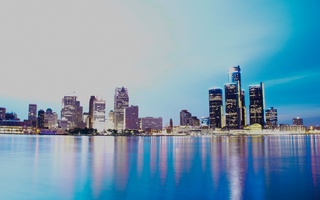{shortcode-7057ed4be70380a4def932142945388053e9a410}
Civics: “a social science dealing with the rights and duties of citizens.” Recently, legislation strengthening civics education in Massachusetts was signed into law by Massachusetts Governor Charlie D. Baker. This legislation established a high school voter challenge program (akin to the University’s Harvard Votes Challenge), adds student-led civics projects to the curriculum, and outlines additional requirements for history and civics instruction.
Teaching civics and engaging students in the democratic process fuels a healthy democracy. And measures like this one should be implemented across the country, as they underpin the fundamental American value of an educated electorate. Without civics, we undervalue our rights, responsibilities, and role in society. After all, Supreme Court Justice Louis D. Brandeis did say that “the most important political office is that of the private citizen.” But in doing all of this, we must not forget the rest of the world.
In civics courses, students learn about other countries’ interactions with the United States, but often fail to dive deeper. Too often, students survive high school US history exams knowing only a few famous British names, that Nazis came from Germany, and something about President Franklin D. Roosevelt, Class of 1904, sitting with a Brit smoking a cigar and a mustached Russian. This is unacceptable. Students don’t need to memorize every form of government in existence. They should, however, have a basic understanding of the different ways people live and organize themselves across the world.
Throughout four years in my public high school in Massachusetts, a school and state each known for their quality of education, I cannot remember a single lesson devoted to India, the second-most populated country in the world. What happened in Mexico besides conquistadors killing Aztecs? Wait, you’re telling me there were civil wars all over Latin America? And what countries are included in Latin America anyway? These questions plagued me throughout high school. A global perspective contributes invaluably to the understanding of our contemporary political reality, domestic and international.
Let’s think about one of the issues discussed repeatedly on the news this past week: the so-called invasion of migrants. Yes, immigration reform deserves serious discussion in this country. But fleeing persecution and seeking asylum is not terrorism, as President Donald Trump and Vice President Mike Pence’s racist implications suggest. Such demagoguery only works when we fail to teach our children about the current and historical situations of Latin American countries. And this phenomenon repeats itself for so many issues that have and will impact the world as we know it: Chancellor Merkel stepping out of the spotlight, the successes of nationalist leaders in Europe and Brazil, Vice President Pence’s Cold War-esque speech on China. The list goes on and on.
Without an increased focus — or any focus at all — on world history, our students will be missing out. Without any significant emphasis placed on learning about other countries, the people, or the cultures, American students cannot adequately place the US in a global context. No number of teachers or required classes can fit everything important about history. But until we increase the focus on world affairs in our schools, not only will we continue to ignore or misread situations like the migrant caravan or the fate of Europe, we will also fail to lead.
Leadership through diplomacy, empathy, and humility is hard to come by as it is. Of course, we should look for these in our representatives at home and abroad. But even moving into the private sector — technology, business, law — these skills remain critical. Conflict resolution isn’t unique to diplomacy.
With world history courses that can help build these qualities, students can fulfill their responsibility as global citizens and work to become the leaders of tomorrow. In a world of increasing globalization and impossibly fast innovation in technology, we are no longer responsible to our neighbors alone. Climate change will not stop itself, extreme poverty will not eradicate itself, and progress will not manifest itself.
Let’s expand our field of view from an electoral map of the United States to a globe with diverse people, thought, and history. It will help us at home, with our neighbors, in the workplace, and as a people.
Noah D. Secondo ’22, a Crimson Editorial comper, lives in Pennypacker Hall.
Read more in Opinion
In Favor of a Realistic Diversity, Inclusivity, and Equity Committee at the Law SchoolRecommended Articles
-
 Small Towns, Big Ideas: Jamie Piltch and The Citizen's Story
Small Towns, Big Ideas: Jamie Piltch and The Citizen's Story -
Public InterestedHarvard students have a lot to contribute to Cambridge, but what’s needed isn’t wisdom, motivation, or any other personal quality.
-
 My Favorite Things
My Favorite Things -
 Fun Fall Ways to Use Pumpkins
Fun Fall Ways to Use Pumpkins -
On (Transformative) Experience, Or: The Hot Take ColumnMost books should be journal articles, and most journal articles should be footnotes. You get the point: Most columns should be tweets.













